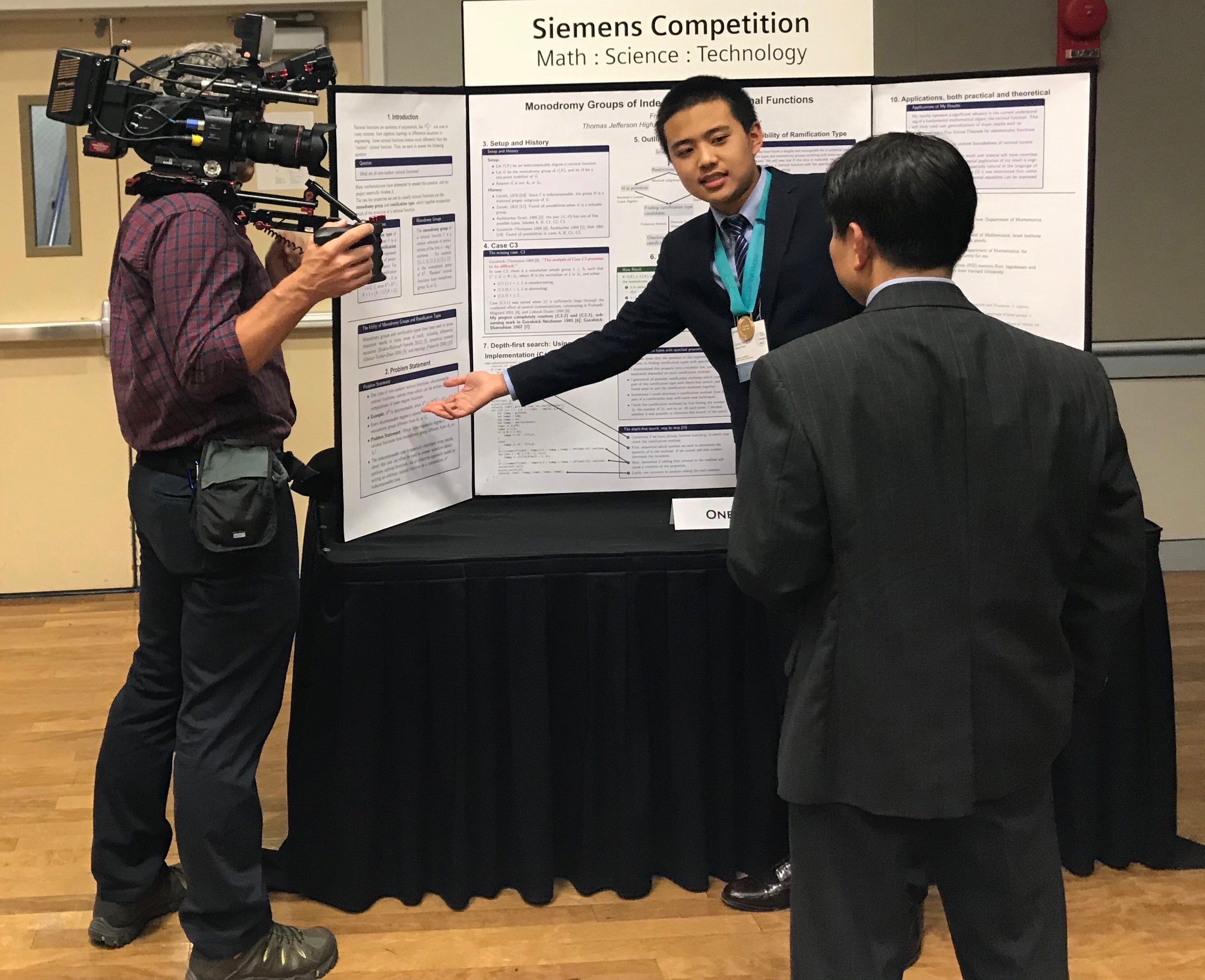It all started when Adam Pahlavan ’20 found out from his younger sister, a high school freshman, that her summer research position was canceled due to COVID-19.
Realizing that a lot of students were going to be left without any plans for the summer, Pahlavan contacted his former science research teacher, Serena McCalla, to see what her students were doing. Most of her students were losing their summer lab positions too, he learned — but McCalla also told him that she wanted to launch an online version of her longtime summer research program to fill the gap.
After Pahlavan heard McCalla’s idea and committed to working fulltime to make it a reality, the Summer STEM Institute (SSI) was born.
SSI will run virtually for six weeks from June 21 to Aug. 1. It offers three components: “a bootcamp that teaches students scientific literacy and data science, a Masterclass series where experts from Stanford, Harvard, and other elite institutions share their advice for high school students, and a personalized and mentored research project that students can submit to science competitions or write about on their college applications,” according to the institute’s website.
The program is open to both domestic and international high school students but will be run “based off of the PST to EST time zone schedules,” the website states. Tuition for the bootcamp and Masterclass is $6,450, and if students decide to conduct a research project, tuition will increase to $9,450.
Despite tuition prices, McCalla, who has always supported underrepresented and underprivileged students’ STEM pursuits, told The Daily that “the plan is to ensure a robust financial aid package for any who need those resources.”
“We’re eager to support all students and a preeminent goal is to make our program as equitable as possible,” she said.
McCalla, an educator at Jericho High School in New York, worked with Pahlavan on his research projects throughout his high school career. Her teaching extends beyond the scope of a high school classroom through the iResearch Corporation, an organization she founded in order to “provide resources, science education tools and mentorship” to students of all backgrounds.
“Ask any parent familiar with the competitive high school science research scene in New York, and they’ll tell you they’d give their student to Dr. McCalla to train in a heartbeat,” Pahlavan said. “Teaching high school students, who are very early on in their scientific and analytical maturity, how to approach a daunting subject like research is no easy undertaking, and that unique education is what SSI is happy to offer in a virtual setting.”
Pahlavan — who graduated in winter quarter and was a teaching assistant (TA) for a graduate-level course, CS 255: “Introduction to Cryptography,” during his time at Stanford — will teach the bootcamp component of SSI alongside McCalla. Pahlavan is also working with a team of Stanford students including Alex Tsun M.S. ’20, a four-time TA for CS 109: “Introduction to Probability for Computer Scientists,” to develop the curriculum for SSI’s data science course, which they Pahlavan and Tsun will co-teach together.
“I feel like all Stanford students have a front seat view into the stunning speed with which technology and data are revolutionizing every industry,” Pahlavan said. “I really think that the world is changing rapidly and that the next generation of students should be exposed to programming and data science at a far earlier age, and the data science bootcamp will teach these skills to students of all backgrounds.”
The Masterclass series, through which SSI students will learn about “a wide variety of fields, from business to college admissions to technology,” will feature many of McCalla’s previous students, who have gone on to win international science research competitions, achieve the “Forbes 30 Under 30” title and study at “numerous elite universities.”
The final aspect of SSI, the research project, is an opt-in component that allows students to conduct a supervised research project. If a student decides to pursue a project through SSI, they will have access to mentors ranging from undergraduate students to STEM professionals to help them carry out their research.
Dhruvik Parikh ’22, one of the SSI mentors, said that the institute will allow students to have more ownership over the projects that they are working on, as students will pursue projects that fit their own interests as opposed to joining a pre-existing project. He also stressed the value of having student mentors: Many of them learned about conducting research in high school, allowing them to better understand the position of their high school mentees.
“Instead of having the mentors being scientists themselves, they are students who have gone through the science research process before in high school,” Parikh said. “But I don’t think that the two types of mentors are mutually exclusive … we’re going to try and encourage students to use our network and get them connected with other mentors, whether they be at students’ local university or at Stanford.”
April 21, 2 p.m.: After this article was published, Serena McCalla decided to end her involvement with SSI. The SSI team plans to continue the program as student-run.
Contact Camryn Pak at cpak23 ‘at’ stanford.edu.
